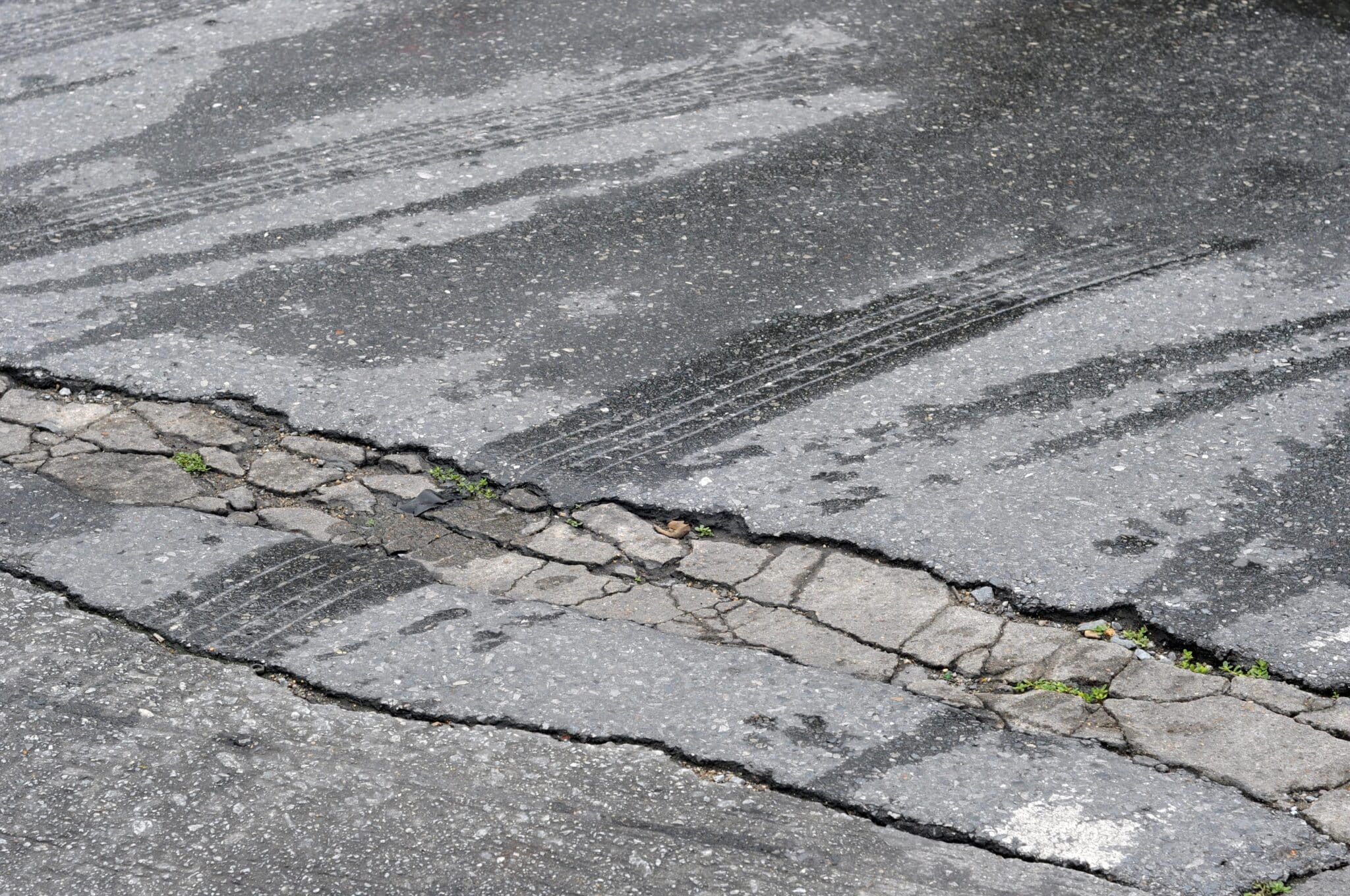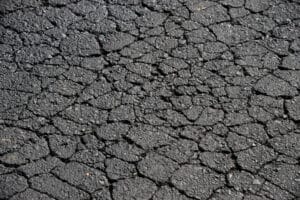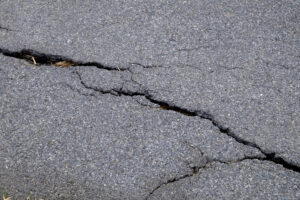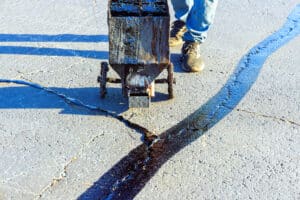Asphalt is an essential component of our roadways. It provides a smooth surface for vehicles and helps to protect the underlying layers from degradation. So, why does asphalt turn grey? From oxidation to weathering, there are several reasons why this happens. In this article, we’ll discuss why asphalt turns grey, overall asphalt degradation and why it’s important to keep your asphalt pavement in good condition.
Oxidation Explained
So why does asphalt turn grey? Well, to understand the process behind it, we first need to understand what oxidation means.
Oxidation is a chemical process that occurs naturally on our planet all around us; basically, it’s the process of atoms or groups of atoms losing their electrons. When something oxidizes, it either loses electrons or gains oxygen. That’s the process, but what actually causes it to happen?
Oxidation happens when an atom, molecule, or ion comes in contact with oxygen – yup, it’s that simple. And as we all know, oxygen is all around us, so naturally everything oxidizes.
Rusty metal is a great example of oxidation. When metals oxidize, the oxygen reacts with the molecules which creates an unstable compound. This is called rusting – which leads to the creation of rust as we know it. Rust is basically the death of metal, as the metal will lose its structure and stability and instead become fragile and turn to dust.
Asphalt Oxidation
Now, we need just a little more context to fully explain this next part. First, we’ll answer the question, “Why is asphalt black?”
The black color actually comes from the compound chemicals in asphalt and the aggregate it is made of. The main culprit is called Bitumen. Bitumen is a by-product of the refining process of crude oil. It’s naturally black in color and is what aggregate is mainly made of.
So, what is asphalt oxidation? The moment asphalt is laid, oxidation begins. The process starts slowly but continues indefinitely and gradually becomes worse. The oxygen starts triggering molecular processes which create bonding sites in the asphalt. These bonding sites are just clumps of asphalt pulling together in an attempt to reach a thermodynamic equilibrium – or in other words, become stable.
As the asphalt moves around to reach this stabilization, cracks form and the once black pavement becomes brittle and dried out. The harsh and continuous UV rays from the sun along with the oxidation discolor the asphalt, leading to grey asphalt.
Warning Signs of Asphalt Deterioration
Now that you understand how oxidation works, what are the signs of oxidation and asphalt deterioration? Here are some key signs to look out for:
- Cracks forming in your asphalt parking lot or driveway.
- Discoloration of your black asphalt into gray asphalt.
- “Raveling,” is basically when the asphalt binder breaks down and the aggregate falls apart leading to gravel, rocks, and sand on the surface of your pavement.
Luckily, there are ways to not only repair and reverse these issues, but to also prevent them entirely.
Read more: Winter Weather, Spring Thaw, & Asphalt: How Freeze Thaw Cycles Damage Asphalt
Tips and Suggestions to Maintain Your Asphalt
In order to maintain your black asphalt and black driveways, you’ll need to regularly sealcoat your pavement. By sealcoating your asphalt, you are essentially laying down a protective layer of compound materials which will protect your asphalt from the environment, from the sun’s UV rays, and – more importantly – from oxygen and the rapid oxidation process.
We recommend investing in a high-quality sealer that aligns with your project goals, and then sealcoating your asphalt as soon as possible. This will ensure that your black pavement lasts decades-long, with minimal damage.
However, if your asphalt is already displaying signs of damage, no need to worry – there are ways to restore your driveway or parking lot and even restore your asphalt driveway color.
First, you will need to address any cracks forming in your asphalt. Depending on the severity of the crack, you’ll have to figure out if it can be sealed or if it needs to be repaired entirely. Read the article linked above for more information.
Next, you will need to regularly maintain your asphalt as best as you can. Don’t delay – the moment your asphalt begins turning gray, raveling, or forming cracks, you’ll need to start sealcoating your asphalt every few years. Unfortunately, depending on how severe the asphalt deterioration is, you may need to consider total reconstruction. This is why we emphasize the importance of maintaining your asphalt.

Frequently Asked Questions
“Why does asphalt turn grey?”
Asphalt turns grey due to a chemical process known as oxidation. During oxidation, your asphalt clumps up, forms cracks, and allows more oxygen and UV rays to enter the deep crust of the asphalt which damages and ages it even further.
“How can I prevent a gray asphalt driveway?”
With regular sealcoating, general maintenance, and proper cleaning, your asphalt will stay fresh, clean, and black for years to come!
“Is there any way to revert gray asphalt back to a black driveway?”
Yes! Simply find the right sealcoating for your gray asphalt driveway and apply it regularly to your pavement. Proper sealcoating can restore the black asphalt and will prevent further aging and damaging.
“What sealer should I buy for old, gray asphalt?”
We have a guide dedicated to answering any questions you may have about asphalt sealers. Check out this article for more information!
Superior Asphalt, LC Has the Answer
Asphalt is a durable material that can last for many years with proper maintenance. However, it’s important to keep an eye out for signs of deterioration so you can make repairs as needed. By understanding why asphalt turns grey and knowing the warning signs of asphalt degradation, you can help to extend the life of your pavement. If you’re in need of asphalt repair or maintenance services, contact our team at Superior Asphalt, LC today. We offer a wide range of services for both commercial and residential customers. From our sealcoating services to crack filling and pothole repair, we can help you keep your asphalt pavement in top condition. Give us a call today to learn more about our services. We look forward to serving you!





